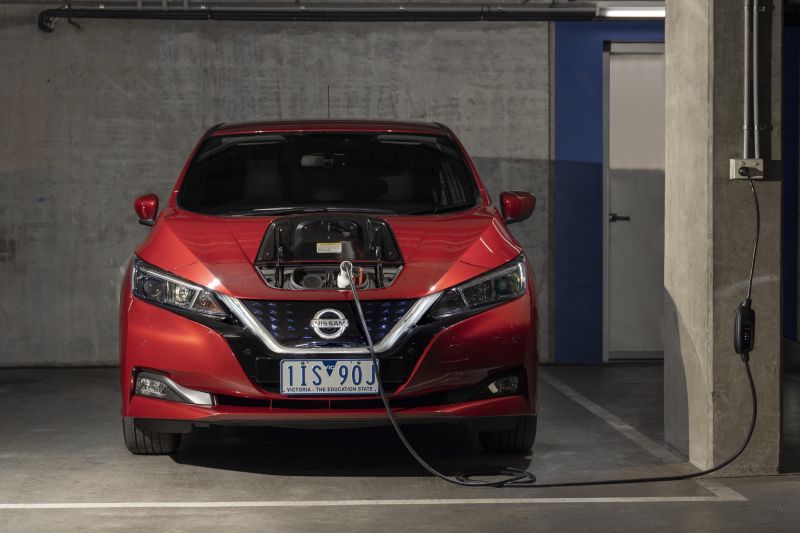A Nissan Leaf has been engulfed in flames in a home-charging incident, and the Victorian Fire Investigation Unit has levelled the blame at one item.
According to a Facebook post by Fire Rescue Victoria, firefighters were called last Tuesday to the scene of an electric vehicle (EV) fire in the Melbourne suburb of Glen Waverley.
The Leaf and the 10x5m garage it was parked in were engulfed in flames, and two people and a dog had evacuated the property.
After five minutes, firefighters wearing breathing apparatuses had brought the fire under control.
100s of new car deals are available through CarExpert right now. Get the experts on your side and score a great deal. Browse now.
Subsequent investigation by the Fire Investigation Unit found the blaze wasn’t caused by the Leaf, but rather by a “travel adaptor connected to an aftermarket charging lead, being used to charge the car”.
The fire not only destroyed the Leaf, but also significantly damaged a Hyundai Genesis parked next to it.
Fire Rescue Victoria has shared the story to warn EV owners about the dangers of using aftermarket chargers and cords, as well as items that don’t bear the Regulatory Compliance Mark.
It’s also warning owners of EVs to follow the manufacturer’s instructions when it comes to charging.
While Nissan includes a mode 3 EVSE cable with new Leafs, it doesn’t include a portable charging cable – colloquially known as a ‘granny cable’ – for use with standard domestic power points.
Nissan does, however, sell these as an accessory at its dealerships.
It appears this owner didn’t purchase the Nissan-approved cable. While this may have saved them some money upfront, it appears to have cost them more in the long run.
While EV battery fires can have long, intense burns, Australian company EV FireSafe says they’re ultimately rare.
According to its data, it says there have been 511 verified EV battery fires globally between 2010 and June 30, 2024, 117 of which occurred in underground or enclosed spaces.
It has warned the greater risk comes not from EVs, but from light electric vehicles (LEVs) such as e-bikes and scooters.









